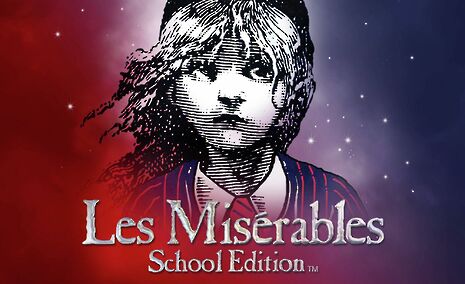Review: Les Misérables
Molly O’Gorman believes that, despite the age of the cast members, the Cambridge Theatre Company pulls Les Mis off admirably

Les Misérables is a notoriously difficult show to stage, as Russell Crowe will tell you. Its sheer length requires huge stamina, big vocal chops are required from pretty much everyone, the plot is messy and intricate and of course there’s the whole ‘world’s longest-running musical’ thing to live up to.
Taking this show on for a group of young people is thus no mean feat, but the Cambridge Theatre Company pulls it off admirably. The production values are high – both the revolve and the lighting, in particular, look lifted out of the West End – and the cast lives up to them. The ensemble is vocally and emotively excellent and a lot larger than the West End, which gives the vocals power and the story scope.
The female ensemble, as always in this show, is woefully underused, but their excellence means that the story is never let down – you will find yourself plunged into 19th-century France for the best part of three hours.
“The show was easily stolen by the rambunctious Thénardiers”
Plenty of individual performances stand out: Daniel Lane as Javert and Zara Minns as Cosette are the stand-out vocalists of the show, and it would be wrong not to mention Oli Wyatt as Jean Valjean, who played one of the most exhausting roles in musical theatre with apparent ease, holding the centre of the show.
However, the show was easily stolen by the rambunctious Thénardiers, Joseph Beach and Emily Glasser, whose larger-than-life caricatures really took the show up a tier. ‘Master of the House’ and especially the ‘Waltz of Treachery’ provided comic highlights equivalent to the West End, and Thénardier’s grim corpse-robbing solo ‘Dog Eats Dog’ also provided the grittiest moment of the show. They were bawdy, overdoing it, engaging with the audience – everything their characters should be, and it was reflected in their reception.
“You will laugh, you will cry...”
Despite this praise, the show never really hits that five-star desperation that has made Les Misérables a global phenomenon. There are flashes of it – Toby Hadden as Gavroche dies excellently, and the women in ‘Turning’ mourn from the heart – but in a musical where every character is motivated by sheer desperation, its safeness falls flat.
The raw sense of constant struggle and the spirit of revolution didn’t grip my heart as they should have; I wanted to leave Act Two feeling physically and emotionally exhausted, like I had been at the barricades, but that sense of catharsis never fully materialised.
There is something especially powerful about lines such as “somewhere beyond the barricade / Is there a world you long to see?” sung by young people, who formed so much of the core of Hugo’s novel. And although in places the cast feels too young to carry off such depths of ravaged emotion, what they lack in experience they make up for in their youth. I can’t deny, however, that this is a great night out.
No, it’s not a professional production, but to hold it to the standards of the West End would be distinctly unfair. Not every note is perfect, and in places the music is a little didactic instead of recitative which hampers the flow, but you will laugh, you will cry (only a fool goes to Les Misérables without waterproof mascara), you will leave the show belting ‘Do You Hear the People Sing?’ and calling for revolution.
Even if it doesn’t quite convince you of the mania of poverty of Hugo’s novel, you will come home uplifted and addicted to the music – and what could be better than that?
 News / Cambridge academics stand out in King’s 2026 Honours List2 January 2026
News / Cambridge academics stand out in King’s 2026 Honours List2 January 2026 Interviews / You don’t need to peak at Cambridge, says Robin Harding31 December 2025
Interviews / You don’t need to peak at Cambridge, says Robin Harding31 December 2025 Comment / What happened to men at Cambridge?31 December 2025
Comment / What happened to men at Cambridge?31 December 2025 News / Varsity’s biggest stories of 202531 December 2025
News / Varsity’s biggest stories of 202531 December 2025 Features / “It’s a momentary expression of rage”: reforming democracy from Cambridge4 January 2026
Features / “It’s a momentary expression of rage”: reforming democracy from Cambridge4 January 2026









